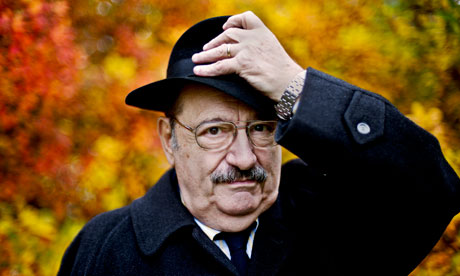
This book might have been intensely irritating. Two European intellectuals meet, and are encouraged by their "curator" Jean-Philippe de Tonnac to show off – for, if they do not put on an exhibition of erudite debate, what is the point of recording them? And show off they do, ranging in their talk from cave paintings to Italian neorealism, from hieroglyphs to computer code, from the 17th-century German Jesuit scholar Athanasius Kircher to Dan Brown, from the teachings of Jesus and Buddha to those of cultists. Reading the jacket blurb, one is inclined to give a hand gesture associated with a four-letter word beginning with "w".
What redeems the book, in Polly McLean's fluent translation (from French) anyway, is the enthusiasm of the talkers. Eco and Carrière clearly fell in love with books as children, and retain their childlike enthusiasm. Eco reckons he has a library of 50,000 books, as well as of 1,200 rare titles; Carrière says he has 2,000 "ancient" books out of a total collection of some 40,000. With this enthusiasm comes intellectual curiosity. If Carrière wants to go on about the ancient language of the Americas, or French poets of the early 17th century, or the Hindu pantheon, he has earned the right to do so, one feels.
Carrière tells us that Waiting for Godot has just been translated into Nahuatl, the language of the Aztecs – "I've already ordered a first edition." Both authors relish such unusual learning. Eco has devoted a collection to wrong-headedness and stupidity, and tells us about the theorists who argued that Norwegian was the first language, that the Earth was immobile, and that Clark Gable would never get anywhere with such prominent ears. The great semiotician also reveals that he likes to spend spare moments "fighting intergalactic wars with monsters from outer space on my computer".
"The end of the book" is, as Eco and Carrière demonstrate, a misguided phrase. First, because printed books continue to be the most efficient and enduring methods of delivering texts: computer formats rapidly become redundant, and contemporary ebooks are not a good bet to outlast their printed counterparts. Second, because there is absolutely no evidence that longform texts themselves, as transmitters of knowledge and entertainment, are in any danger of diminishing in value. Certainly, they receive an excellent advertisement in Eco and Carrière's playful and learned conversations.
The title of this article was amended on 28 May

